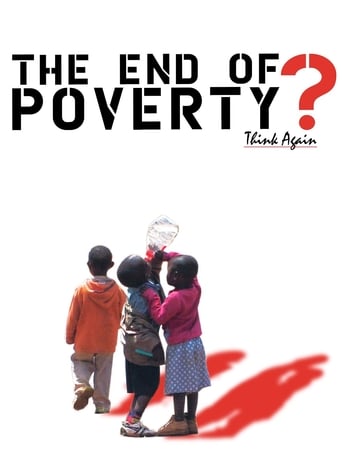


The End of Poverty?
The End of Poverty? asks if the true causes of poverty today stem from a deliberate orchestration since colonial times which has evolved into our modern system whereby wealthy nations exploit the poor. People living and fighting against poverty answer condemning colonialism and its consequences; land grab, exploitation of natural resources, debt, free markets, demand for corporate profits and the evolution of an economic system in in which 25% of the world's population consumes 85% of its wealth. Featuring Nobel Prize winner Amartya Sen and Joseph Stiglitz, authors/activist Susan George, Eric Toussaint, Bolivian Vice President Alvaro Garcia Linera and more.
-
- Cast:
- Martin Sheen , John Perkins , Amartya Sen


Similar titles
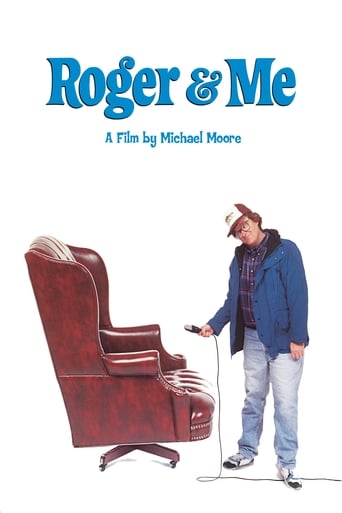


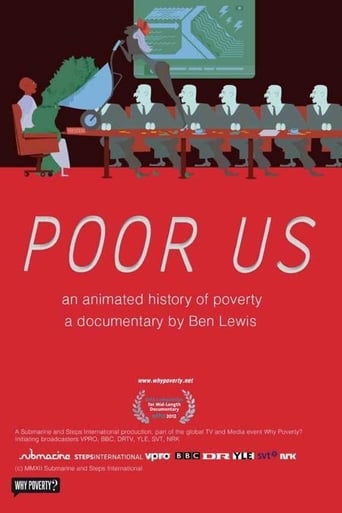

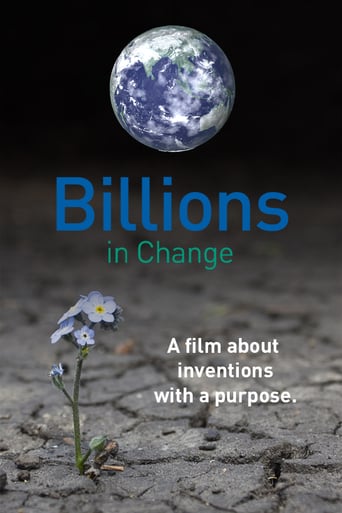

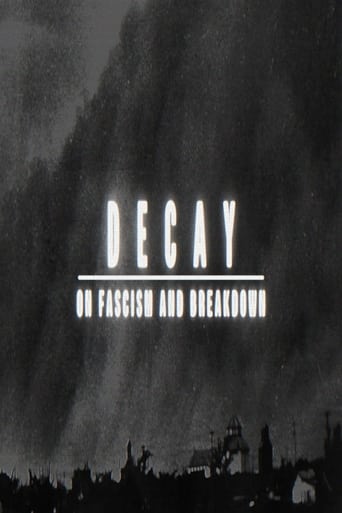

Reviews
Touches You
Good movie but grossly overrated
Better Late Then Never
All of these films share one commonality, that being a kind of emotional center that humanizes a cast of monsters.
This documentary explores poverty as it exists today, and takes us through a historical account of how it came to be, as it is today(it does not go into the larger discussion of there having been different status levels and each having specific benefits(or limitations) as long as there have been even barely organized communities - this would require its own feature-length piece), across the world, not only in the US. It does so with personal interviews with economists with the perspective and who've studied the subject, and the individual workers and their families, who are living with the consequences of the irresponsible and callous actions of corporate leaders, banks and politicians. This engages with a healthy mix of facts and accounts(to keep it from getting dry or letting it become too theoretical, we have to remember that there are actual people suffering, and many of them, no less), and it keeps a nice pace throughout. It's well-edited. This really gets you wanting to solve the problem, and few will keep holding on to the opposing opinion after watching this. There is disturbing content in this. I recommend this to everyone. 7/10
Louis Proyect's objection to Barry Freed's scathing critique of this movie is that it mentions primitive accumulation, and that this is a Marxist theory. Fair enough. However, one of the problems with the film is that it never STOPS being about primitive accumulation. The filmmakers indulge themselves in a kind of 21st century, post-modern romantic nationalism, which blames, the words of one of them tonight where I saw the film, the "overconsumption" of the First World--every single member of the First World, even the starving children in Harlem and Bed Stuy and Appalachia?!--for the problem of poverty in the Third World.Freed is correct to argue that this doesn't give us much in the way of practical solutions, and nothing approaching the Marxist strategy of workers revolution in the advanced capitalist countries. Indeed one of the experts interviewed poo poos the very idea of communism, as Freed points out. It's just unthinkable, he says or implies.Freed's review however, is only half right--the first half. The second half indulges in the curious notion that once the workers take over, all the scarcities, the Limits to Growth, the finiteness of energy resources, and environmental problems we see today under capitalist industry will somehow magically disappear in a puff of (genie?) smoke, and that anyone who questions the rather questionable idea that technology under workers control will solve all our present problems with overuse of resources, global warming, and pollution--well such sceptics are nothing but "Malthusians." Somebody in the audience during the Q&A period expressed this point of view as well. Marxists really sell themselves short and come off like muddle headed ignoramuses when they talk like this. This isn't science--this is wishful thinking.
I was somewhat amused to see the "leftist" criticism of this movie by Barry Freed. I have been involved with Marxist politics since 1967 and can assure IMDb readers that the movie is based on Marx's theory of primitive accumulation. My review begins here:Scheduled for theatrical release in September 2009, Philippe Diaz's "The End of Poverty?" was a feature presentation at the 2008 African Diaspora Film Festival. After watching this documentary last night, I feel confident in stating that there is no sharper critic of the capitalist system in the film world than Philippe Diaz. This amazing movie not only explains how global inequality has its roots in 1492, but also allows the victims of "Western civilization" to speak for themselves. Indeed, the movie will remind you of Mahatma Gandhi's famous rely to a Western reporter who asked him what he thought of Western civilization. He answered, "I think it would be a good idea."full: http://louisproyect.wordpress.com/2009/02/26/the-end-of-poverty/
Just watched it last night at the Athens International Film Festival. This is the kind of documentary I love! It gives you an excellent overview of how the so-called First World has been exploiting the natural resources and human labour of Third World countries for the past 500 years and how the economics and politics behind this brutal exploitation work. This movie is completely different to the Michael Moore-style documentaries that seem to dominate the scene nowadays. Rather than using populism to impress the audience, it presents its case by providing both the opinion of highly respected economists, authors and political advisors, as well as the view of third world people that have been actually experiencing the consequences of the neo-liberal policies. An insight on the methods used by the West (the US in particular) to promote and impose their preferred policies to Third World countries is one of the strongest points of this movie. I am not going to expand on that as I do not want to spoil it for you! In any case, this is a brilliant documentary worth seeing by anyone who has the slightest interest in politics and economics.
